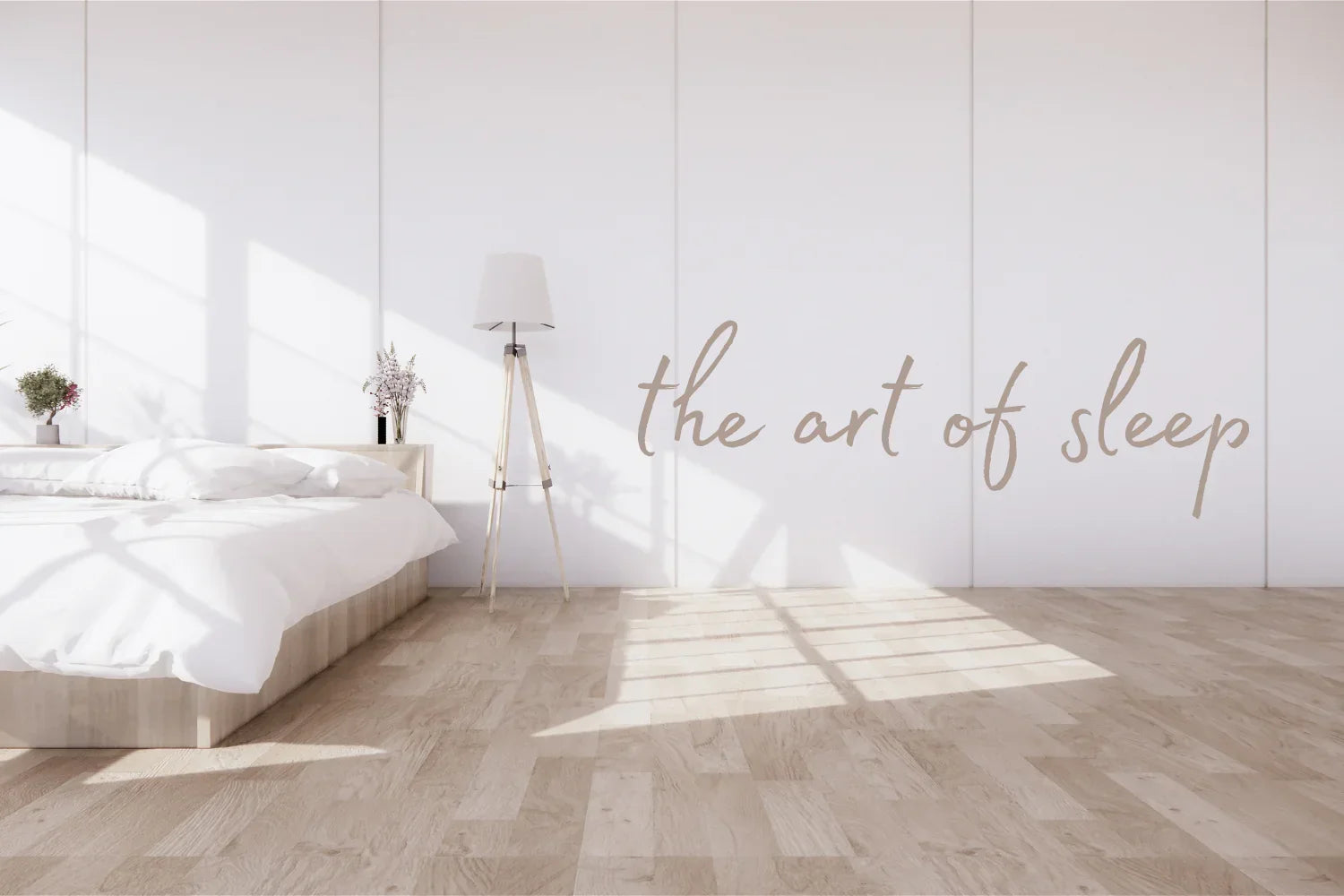
How to Relax for Better Sleep
Relaxation at the end of your busy day is the easiest—and the healthiest way to transition into restful sleep.
When we're engaged in pleasurable activities, our minds and bodies naturally settle into a calmer state. With stress and tension relieved, we drift off to sleep more easily. Today we'll look at the #1 way to relax.
Too often, we view this essential resource as a luxury... Choose to relax for better sleep. You won't just get better sleep—you’ll feel better, and get more out of life.
Relax your mind for better sleep
Often, the reason it's difficult to fall asleep, is that we haven’t learned how to turn off our over-active minds. This affects our bodies by activating a stress response which can manifest in irregular breathing, increased heart rate and blood pressure and impaired digestion. Who can sleep through that?
The good news is that we can learn to activate a different process that will calm us and prepare us for quality sleep; this is the relaxation response.
What does relaxation mean to you?
Don't have a regular way of unplugging and unwinding?
If you haven't discovered a way to leave the day's cares behind... if you're one of the millions suffering from insomnia or another sleep disorder... don't lose hope. We're going to look at ways to help you get your sleep; including the number one method people use to relax.
While various relaxation “techniques” are considered helpful in dealing with insomnia and other sleep disturbances, finding the right method is a personal journey. One way we can learn to relax, and thereby get better sleep, is through meditation. This practice focused on the mind, benefits body and spirit as well which helps ease us into sleep.
Meditation facilitates a deep state of relaxation;allowing you to calm and clear your mind. This is essential to getting quality sleep. Its key purpose is to eliminate any distracting or disabling thoughts. In this way, meditating promotes a healthier physical and emotional state which causes you to naturally relax.
What is meditation?
By basic definition, meditationengages one in contemplation or reflection. Meditating helps us take charge of distracting thoughts or concerns by channeling them into affirming thoughts and behaviors. This in turn reduces our stress.
How does it work? Repeating positive words or suggestions in your mind promotes relaxation and reduces muscle tension. Visualizing yourself in a serene environment, transports you out of your internal chaos. Controlled, relaxed breathing helps get your heart rate and blood pressure in check.
Meditation's sleep benefits
Regular practitioners of meditation seem to have immunity to sleep disorders—why is that?
Meditation helps to increase the body’s natural production of melatonin. A Rutgers University study revealed that subjects who practice meditation regularly, show an increase in melatonin levels far above the average levels of those who don’t meditate–or don’t meditate on a regular basis. This is only one reason meditation is considered the numberone way to relax for better sleep...
Meditation helps by calming our brains. It virtually neutralizes those insomnia-inducing beta waves. Those pesky thoughts that keep us awake and anxious... poof, gone, replaced!
Experienced meditators see a boost in the more calming alpha, theta and delta brainwaves; which balance out the negative thought patterns with sleep-promoting positive thoughts.
Relaxed for better sleep...
Mastering your mind through meditation lets you transition from a state of fitful restlessness to a state of deep, rejuvenating sleep. Countless studies attest to its effectiveness in overcoming a myriad of sleep disorders including the most severe cases of insomnia.
“The goal of mediation is not to get rid of thoughts or emotions. The goal is to become more aware of your thoughts and emotions and learn how to move through them without getting stuck.”
– Dr. P Goldin
Best time to meditate for sleep
Leave 1-2 hours between meditating and your regular bedtime.
Meditation is technically, to become more fully "awake;" leaving space between meditating and your regular bedtime will allow you the transition time you need to relax.
The end of your work day creates a natural boundary between daytime concerns and your nighttime wind-down ritual. This is a perfect time to start!
How to begin your meditation
Find a quiet space where you can sit or lie down. It's essential to be comfortable--achieving relaxation will allow your body to begin preparing for better sleep.
If you have a quiet outdoor space, the fresh air and other natural elements can assist in helping you unwind...

Make sure to remove any distractions like digital devices—and if random thoughts invade your head space, just let them go…
Focused Breathing
Prepare for your meditation with this simple breathing exercise:
Begin by closing your eyes.
The next step is to focus on your breathing... while slowly inhaling and exhaling deeply:
- Inhale deeply for 10 counts
- Hold for 10 counts
- Exhale for 10 counts
- Repeat 5 Times
Set a time limit and be patient
- 3-5 minutes is good starting point for beginners. Gradually, over time, increase your meditations to 15-20 minutes.
- Take your time; you'll get there with practice!
Repeat words or suggestions
Introduce thoughts in your mind that have the power to help you relax and reduce stress. If you're short on inspiration, this "good read," can help get you started...
“Don't be pushed around by the fears in your mind. Be led by the dreams in your heart.”
― Roy T. Bennett, The Light in the Heart
Possible meditations:
- Adapting an attitude of gratitude
- Setting boundaries that allow you more personal time
- Developing a more empowering self-image
- Creating greater balance between home and career
- Releasing unhealthy habits, etc.
Boost your results with Pink Noise
For help in clearing your mind, try listening to our brain-relaxing pink noise. Use SoundOff earbuds to help focus during your meditations or use them to relax for better sleep. How does it help? Steady pink noise has a soothing effect on your brain waves. This helps calm the mind and induces stable sleep.
Stay tuned for more tips on how to wind down and relax for better sleep...
Training ourselves to relax plays a key role in getting the quality sleep we need to get the most out of life. Different things work for different people and there are many options we can employ to get ourselves to that perfect state of relaxation. We’ll be taking a closer look at some of these relaxing rituals in future posts. Until then...
May you sleep well and be well!

“I can’t believe how well I am sleeping with these. Not only does it drown out the sound of my husband snoring, but I am so much more relaxed in my sleep, and I am sleeping deeper. This product is definitely worth it!”- Sarah M.
Discover deeper, more rejuvenating sleep with our pink noise earbuds!

































